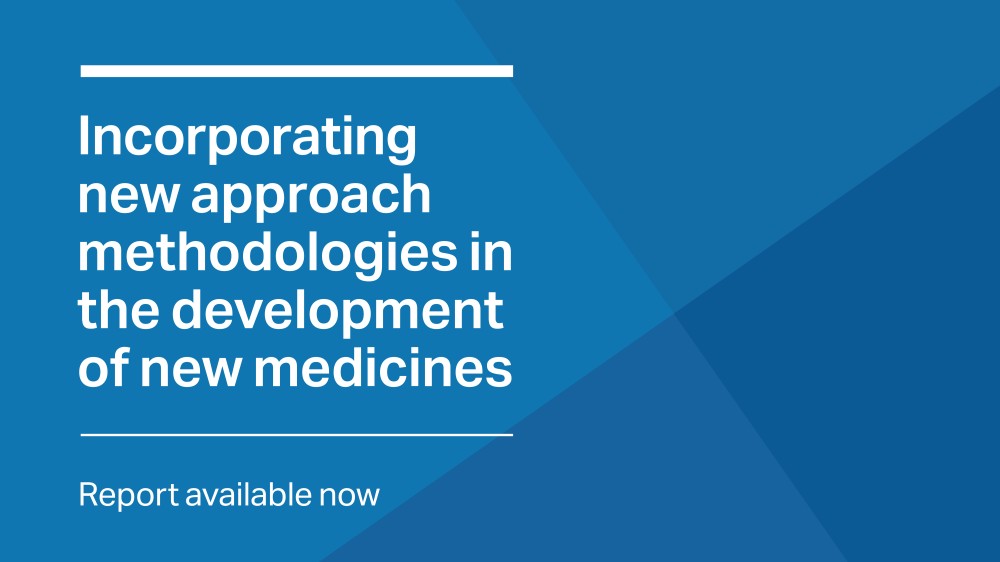Incorporating NAMs into medicines development: Insights from regulators, industry and academia

Report from the NC3Rs, in collaboration with the ABPI and MHRA, explores how New Approach Methodologies (NAMs) can transform the way medicines are developed – harnessing cutting edge human-relevant technologies and reducing reliance on animal testing.
New approach methodologies, more commonly known as NAMs, are technologies that replace or reduce the use of animals in safety testing. They include advanced in vitro models such as organoids and organ-on-a-chip systems, in silico tools including AI and modelling approaches, and other human-relevant approaches that are already contributing to decision-making across the medicines development pipeline.
The joint report describes insights from a cross-sector workshop convened by the NC3Rs, ABPI and MHRA, bringing together experts from regulatory agencies, industry and academia. Discussions focused on where NAMs are currently being used in medicines development, the scientific and regulatory challenges to broader adoption, and practical steps to accelerate progress.
Read and download the full report: Incorporating new approach methodologies in the development of new medicines.
Key themes emerging from the workshop included the importance of early engagement with regulators, clear guidance on qualification and validation of NAMs, and international collaboration to ensure consistent regulatory expectations globally.
While animal studies currently remain a core part of regulatory safety assessment there is considerable interest in using NAMs, in the short-term to add value to complement animal studies, and in the longer term to realise their potential to replace the use of animals.
“This report reflects the growing momentum across the scientific community to advance human-relevant approaches in drug development.
Building on our long-standing collaboration with the ABPI and MHRA, we are working together to ensure that NAMs are developed and used in ways that support innovation, protect patient safety, and deliver substantial changes in how animals are used.”
Fiona Sewell, Head of Toxicology, NC3Rs
“We welcome this report as a valuable contribution to the evolving conversation around New Approach Methodologies. MHRA is committed to supporting innovation that enhances patient safety and regulatory confidence. By working collaboratively with partners across government, industry and academia, we can help advise on how NAMs are developed and adopted in ways that are scientifically robust, human-relevant, and aligned with our regulatory responsibilities.”
Julian Beach, Interim Executive Director of Healthcare Quality and Access, MHRA
“The pharmaceutical industry is committed to advancing the development of New Approach Methodologies (NAMs) and continues to make significant investment in the development of these technologies.
Replicating human biology outside animal models is scientifically challenging. We therefore must use a phased scientific approach to adopting NAMs, ensuring that each NAM developed is able to accurately inform decisions about patient safety.
This report proposes a comprehensive overview of the current status of NAMs, and the challenges and opportunities in their adoption. We look forward to continuing to work closely with regulators, government, and scientists across all sectors, to facilitate the development and validation of NAMs.”
ABPI spokesperson
Further NC3Rs work in this area
The report builds on recent NC3Rs work to improve the translation of non-clinical research and reduce reliance on animal models, including a briefing paper on human-relevant in vitro models, which outlines how these approaches can improve safety and efficacy testing. Together, these efforts support better science, improved patient outcomes, and reduced reliance on animals.
We encourage stakeholders from across the NAMs sector to join the NC3Rs NAMs Network. The Network brings together researchers, technology developers and industry and regulatory end-users together to accelerate the use of NAMs by promoting dialogue and information exchange, supporting the formation of new collaborations and sharing technologies to maximise their scientific and 3Rs impact.
